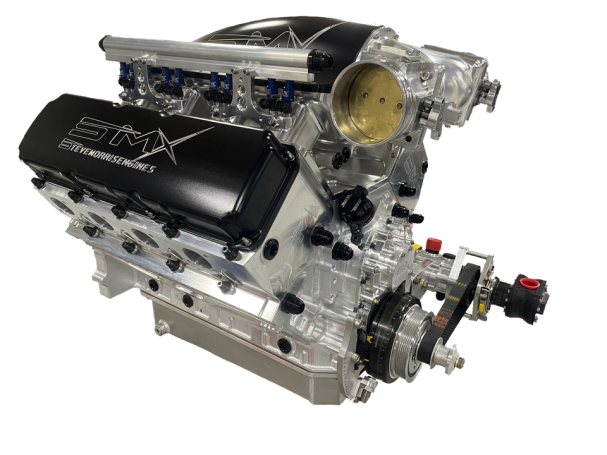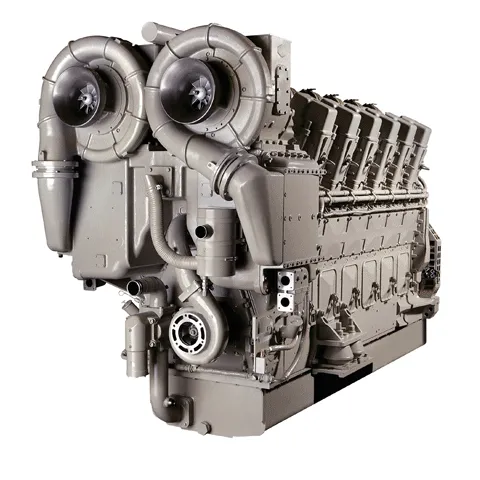Discover a Wide Variety of Engines for Every Lorry and Objective
The automotive landscape is significantly complex, with a diverse array of engine kinds designed to satisfy specific performance and effectiveness demands throughout numerous lorry classifications. From the high-performance engines that power cars to the fuel-efficient choices customized for day-to-day commuting, the options are large and differed. Furthermore, durable engines offer the needs of job vehicles, while environmentally friendly alternatives are obtaining traction in the pursuit of sustainable transportation. Recognizing these distinctions is crucial for making informed choices, specifically as arising innovations remain to shape the future of automobile engineering. What ramifications might these innovations hold for suppliers and consumers alike?
Kinds Of Automotive Engines
Automotive engines can be categorized into several distinct kinds, each designed to meet particular performance and efficiency needs. The most typical groups consist of inner burning engines, electrical engines, and crossbreed systems.

Electric engines, on the various other hand, operate electric power stored in batteries, providing instantaneous torque and no discharges. These engines are becoming significantly popular as a result of innovations in battery modern technology and the growing focus on sustainability.
Crossbreed systems combine both inner combustion and electric engines, making it possible for vehicles to maximize gas effectiveness and minimize exhausts by flawlessly switching over between power sources. Each engine kind provides its negative aspects and advantages, influencing factors such as vehicle design, intended usage, and market demand. When choosing the ideal engine for their specific requirements., comprehending these differences is important for customers and makers alike.
Performance Engines for Sports Cars
Efficiency engines for sporting activities autos are especially crafted to deliver boosted power, rate, and dexterity, establishing them apart from common auto engines. These engines usually make use of sophisticated technologies such as turbocharging, turbo charging, and variable valve timing to take full advantage of performance and responsiveness.
Typically, performance engines are developed with higher compression proportions, which enable for higher energy extraction from fuel. This causes outstanding horse power and torque figures, allowing quick velocity and higher full throttle. Furthermore, the light-weight materials made use of in these engines, such as aluminum and carbon fiber, add to reduced general vehicle weight, improving handling and maneuverability.
Engine configurations like V6, V8, and also hybrid systems are common in performance sports automobiles, each offering one-of-a-kind benefits in terms of power shipment and driving dynamics. The tuning of these engines is additionally important; lots of producers maximize the engine management systems to offer a thrilling driving experience, frequently including sport modes that readjust throttle feedback and equipment shifts.
Effective Engines for Daily Commuters
In the world of daily commuting, effective engines play a critical role in maximizing fuel economic climate and decreasing discharges while giving reliable efficiency. As city populations grow and environmental issues magnify, the demand for cars furnished with effective powertrains has actually risen.
Modern engines developed for day-to-day travelers typically include modern technologies such as turbocharging, straight gas shot, and crossbreed systems. Turbocharging enhances engine efficiency forcibly more air into the combustion chamber, permitting smaller, lighter engines that do not jeopardize power result. Straight gas injection improves fuel atomization, causing better burning and enhanced efficiency.
Crossbreed engines, combining internal burning with electrical power, further enhance fuel economy, especially in stop-and-go web traffic, where standard engines can struggle with ineffectiveness. Electric motors help during acceleration and can operate individually at low rates, decreasing general gas usage.
In addition, improvements in engine administration systems and lightweight products contribute considerably to efficient engine design. By concentrating on performance, longevity, and environmental sustainability, suppliers continue to provide engines that not just fulfill the needs of daily commuting yet also line up with global efforts to lower carbon footprints.
Heavy-Duty Engines for Work Autos
Heavy-duty engines for job vehicles are consistently crafted to provide outstanding torque and integrity under demanding problems. These engines are designed to do in environments where typical engines may falter, such as building sites, logging operations, and agricultural settings. The key focus of durable engines is their capacity to create high levels of power while preserving sturdiness over prolonged periods of procedure.
Commonly, sturdy engines make use of innovative products and robust construction strategies to endure the rigors of hefty workloads. Attributes such as reinforced cyndrical tube blocks, boosted air conditioning systems, and advanced gas injection technologies add to their efficiency. These engines usually operate at reduced RPMs, which helps to maximize fuel effectiveness while giving the essential power for transporting and lugging.
Along with mechanical robustness, durable engines are often geared up with innovative electronic control devices (ECUs) that manage performance, discharges, and diagnostics. This assimilation enables better tracking and maintenance, making sure that job cars stay functional and reliable.
Ultimately, durable engines are a crucial component in the efficiency of numerous sectors, giving the necessary power and reliability to take on the toughest of tasks.
Eco-Friendly Engine Options
The growing emphasis on sustainability has brought about the growth of environmentally friendly engine choices that prioritize lowered emissions and improved gas performance. These engines are created to decrease the ecological effect of automobiles while still providing the performance and reliability anticipated by customers.
Amongst one of the most noteworthy green alternatives are hybrid and electrical engines. Crossbreed engines incorporate standard interior combustion engines with electrical propulsion, enabling for minimized fuel consumption and reduced greenhouse gas emissions. Electric engines, on the other hand, run totally on battery power, creating zero tailpipe emissions and see this page contributing to cleaner air top quality.
An additional promising growth is the improvement of biofuel engines, which utilize renewable energies, such as plant materials, to power vehicles (Engines For Africa). By utilizing biofuels, these engines can reduce dependence on nonrenewable fuel sources and lower total carbon footprints

As the automobile industry advances, environment-friendly engine options find here will play a critical role in driving the shift towards more lasting transportation solutions.
Final Thought
The automotive market offers a diverse variety of engines designed to satisfy numerous automobile needs and functions. From high-performance engines that boost cars abilities to reliable models prioritizing gas economic situation for everyday travelers, each type serves a details feature. Heavy-duty engines deal with durable work cars, while environment-friendly options, such as electric and biofuel engines, advertise lasting transportation. This comprehensive variety ensures that all driving demands are attended to, adding to advancements in automobile modern technology and ecological stewardship.
